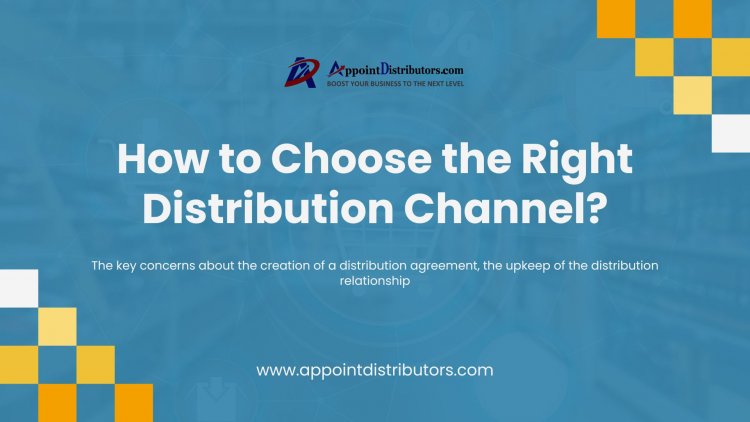How to Choose the Right Distribution Channel?
The key concerns about the creation of a distribution agreement, the upkeep of the distribution relationship, and the termination of any such partnership will be discussed in later articles.

What is Product Distribution?
Now let's get technical. Dispersing a product around the market to make it available for purchase is known as distribution. It includes delivery, packaging, and transportation. For a business to have sales, distribution is essential.
A distributor is a person who buys goods, keeps them in storage, and then distributes them via a channel of distribution. They represent a specific company rather than themselves and stand in the way of manufacturers, merchants, or consumers. Distributors typically engage in cooperative relationships with manufacturers and clients.
The correct distributorship opportunity may offer a business an advantage in terms of speed and efficiency while also increasing its exposure in the product market.
Know your Distribution Channel
A distribution channel is the path by which goods are sent from a manufacturer to a customer. It is the course that an exchange takes. Distributors are the middlemen who transport and store goods so that manufacturers can sell them to retailers. These channels might be progressively more complicated or more basic.
Both direct and indirect pathways exist. The manufacturer and the customer deal directly in a direct channel. Conversely, an indirect channel includes middlemen in the sales process. The movement between producers and consumers is divided into four stages. Understanding the various distribution tiers is essential if you want to change up your distribution strategy or intend to enter new markets.
How Distributorship Process Work?
A distributorship is an arrangement in which a distributor and a producer work together. A distributor purchases products from a producer and resells them to customers, occasionally via retail locations in the distribution chain. Distributors may choose to sell items directly to customers or to other companies, depending on the kind of product or service. When distributors sell products to customers for more money than they paid the manufacturer, they profit.
Also read: https://blog.appointdistributors.com/distributor-appointment-services-for-manufacturers
Who will be the Distributor?
Typically, a distributor is a legally binding arrangement between a manufacturer and a distributor, wherein both parties must fulfill specific obligations to the other. In a distributorship agreement, for instance, a producer can be required to produce a specific quantity of goods in return for the distributor distributing them to customers at a predetermined price.
It is imperative that you select the best distributor for your products and business. As such, you should take your time and carefully analyze your options. Selecting a dependable, networked distributor with firsthand knowledge of the area and business dynamics might be an inexpensive and efficient way to get started in a new market. Although the distributor and supplier may have different roles, the distributor will typically be fully in charge of your goods' importation and will become the owner of the goods it purchases from the supplier. Additionally, the distributor will be free to do with these goods as he pleases, so you have to put your trust in them to build your brand in the appropriate market.
What's Your Reaction?




















